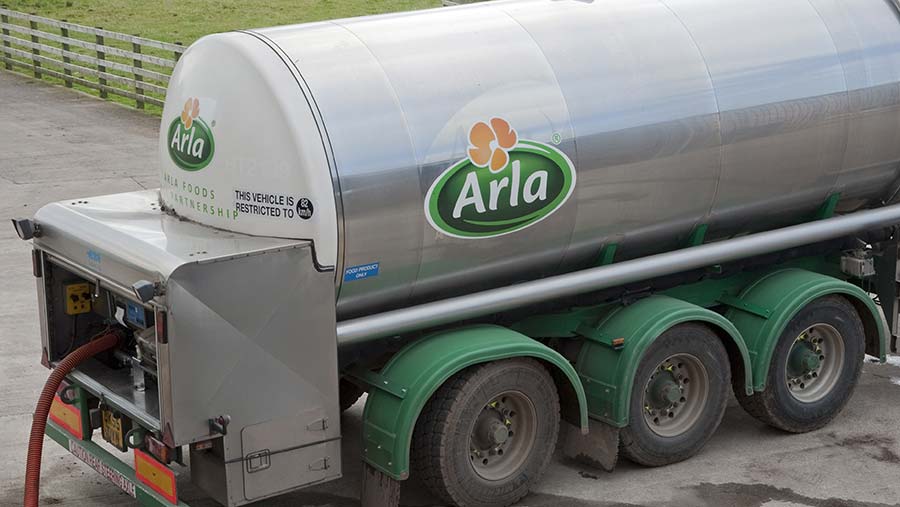Arla farmers to grow milk volumes by 17% by 2020
 © FLPA/Rex Shutterstock
© FLPA/Rex Shutterstock The UK’s biggest milk buyer, Arla, has said it expects its farmer-members across Europe to grow milk production by 17% over the next five years.
The co-op unveiled a new strategy this week to grow its milk production by 2.5bn litres by 2020. This is in addition to the 6bn-litre rise seen since 2007.
The business said the rise in milk production would give it “more growth opportunities than ever before”, which in turn would create value for its 12,700 farmer-owners across Europe.
See also: Arla tells dairy farmers it will hold December milk price
Arla has the UK dairy industry’s largest milk pool, with about 3,200 members spread across the country.
The Good Growth Strategy 2020 document says Arla has identified eight product categories that will be the central focus for the company’s efforts.
They will be marketed through the Lurpak, Castello and Arla brand names.
Arla’s 8 priority product categories
- Butter and spreads
- Spreadable cheese
- Speciality cheese
- Milk-based beverages
- Yogurt
- Milk and powder
- Mozzarella
- Ingredients
“We have analysed consumer needs and trends across dairy categories worldwide and have matched this with our own biggest strengths,” said Arla Foods chief executive Peder Tuborgh.
Global market expansion
In terms of export markets, the business plans to focus on Europe (predominantly the UK, Sweden, Denmark and Germany), the Middle East, China, Russia, Nigeria and the US.
“We are stepping up our efforts in the United States and Nigeria, while continuing to build on our positions in Europe, the Middle East and China. We also remain hopeful that Russia will reopen for business, at which point it will still be a very attractive market for Arla,” said Mr Tuborgh.
“We are not pulling out of any markets that are not mentioned, but we will focus our innovation, investments and competences on those lead markets. Over the coming five years we expect about half of our growth to come from outside the EU as we grow market shares, while the other half will come from within the EU as we grow in key categories and add value through innovation.”
Arla would increasingly act as a global food company, with efficiencies being found throughout the supply chain by establishing one European milk pool, he added.
“You will see our branding and marketing becoming more global, improving the spend effectiveness, and you will see Arla driving more radical innovation across borders.”
